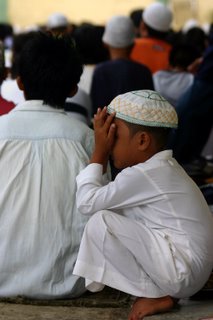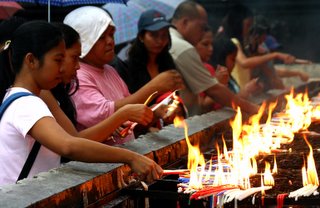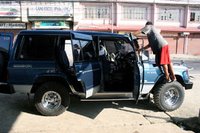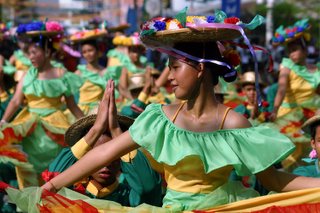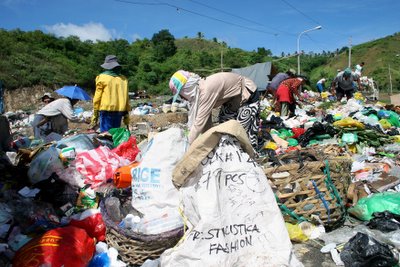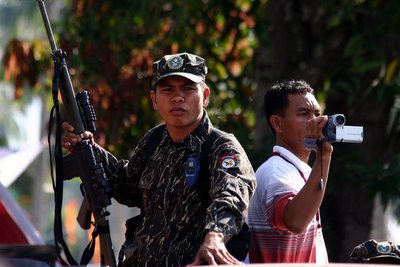
ZAMBOANGA CITY (ZamboangaJournal / 30 Dec) -- A group of international cease-fire observers deployed in the southern Philippines said it will investigate the military's accusations that the Moro Islamic Liberation Front (MILF) is secretly recruiting new members and training rebels and broke a fragile truce it signed with the Filipino government.
The MILF, the largest separatist rebel group in the country, is currently negotiating peace with Manila.
But Southern Philippines military chief Lt. Gen. Edilberto Adan accused the group of training rebels and recruited as many as 4,000 new members since early this year.
Adan said despite a strong protest, the MILF continues to train and recruit in at least 8 towns and provinces in the south. But the MILF denied the accusations and said the military is scuttling the peace talks, which are expected to resume next month in Kuala Lumpur.
Malaysian Admiral Muhammad Som, a spokesman for the 64-man international truce monitoring team, said they will investigate the accusations.
"In fact, the Government of the Republic of the Philippines launched a protest about this issue. Both the IMT and the MILF are aware of this and attempts are being made to investigate and look into these allegations."
"Since these allegation covers a large area in Mindanao, the investigation will take a little more time, but we will address the issue systematically and professionally and bear in mind the importance of peace that we have achieved so far," Som said.
He said the peace talks, which began in 2001, have already achieved significant gains and urged government and rebel negotiators to sustain the peace process.
"The peace talks are going very well, although, of course there is conflict going on, but what is important here is to keep the momentum of peace alive and we must not miss this opportunity in Mindanao. So far, the cease-fire agreement between the government and rebels is holding very well," he said.
He said his group is also monitoring socio and economic developments and rehabilitation of conflict-affected areas in the strife-torn, but mineral-rich region.
The IMT is composed of representatives from Malaysia, Brunei and Libya and deployed last year in the southern Philippines to monitor the truce Manila and the MILF.
It has put up headquarters in the cities of Zamboanga, Cotabato, General Santos, Iligan and Davao, Som said.
"Since these allegation covers a large area in Mindanao, the investigation will take a little more time, but we will address the issue systematically and professionally and bear in mind the importance of peace that we have achieved so far, " Som said.
He said the peace talks, which began in 2001, have already achieved significant gains and urged government and rebel negotiators to sustain the peace process.
"The peace talks are going very well, although, of course there is conflict going on, but what is important here is to keep the momentum of peace alive and we must not miss this opportunity in Mindanao. So far, the cease-fire agreement between the government and rebels is holding very well," he said.
He said his group is also monitoring socio and economic developments and rehabilitation of conflict-affected areas in the strife-torn, but mineral-rich region.
The IMT is composed of representatives from Malaysia, Brunei and Libya and deployed last year in the southern Philippines to monitor the truce Manila and the MILF.
It has put up headquarters in the cities of Zamboanga, Cotabato, General Santos, Iligan and Davao, Som said.
Brunei last month praised the peace talks and expressed optimism that a deal would soon end the decades-old problems in Mindanao.
Brunei's Royal Armed Forces commander Maj. Gen. Dato' Paduka Seri Haji Awang Halbi bin Haji Moh'd Yusof arrived in November in Maguindanao province and met with government and rebel peace negotiators.
He was the highest Bruneian official to have visited Maguindanao since the peace talks began. A group of senior Bruneian security officials, led by Col. Pengiran Haji Rosli bin Pengiran Haji Chuchu, commander of the Royal Brunei Land Force, also visited Maguindanao in October.
The province is a known MILF stronghold in the south, where Filipino troops are battling Abu Sayyaf militants tied with the al-Qaeda terror network and the regional Jemaah Islamiya group.
Malaysia, which is brokering the talks, earlier expressed optimism the Arroyo government and the MILF would be able to strike a peace agreement next year.
Brunei last month praised the peace talks and expressed optimism that a deal would soon end the decades-old problems in Mindanao.
Brunei's Royal Armed Forces commander Maj. Gen. Dato' Paduka Seri Haji Awang Halbi bin Haji Moh'd Yusof arrived in November in Maguindanao province and met with government and rebel peace negotiators.
He was the highest Bruneian official to have visited Maguindanao since the peace talks began.
A group of senior Bruneian security officials, led by Col. Pengiran Haji Rosli bin Pengiran Haji Chuchu, commander of the Royal Brunei Land Force, also visited Maguindanao in October.
The province is a known MILF stronghold in the south, where Filipino troops are battling Abu Sayyaf militants tied with the al-Qaeda terror network and the regional Jemaah Islamiya group.
Malaysia, which is brokering the talks, earlier expressed optimism the Arroyo government and the MILF would be able to strike a peace agreement next year.
The MILF, which split with the larger Moro National Liberation Front (MNLF) in 1978, is fighting for a separate Muslim homeland in the south.
The MNLF signed a peace agreement with Manila in September 1996, but many of its members who were disgruntled with the accord, had joined either the MILF and the Abu Sayyaf.
Many Muslim countries, including Saudi Arabia and Indonesia, and the influential Organization of Islamic Conference, and the United States, are supporting the peace talks.
President Gloria Arroyo said that 80% of the peace talks have been completed and that permanent peace in Mindanao is within reach. (zamboangajournal)

